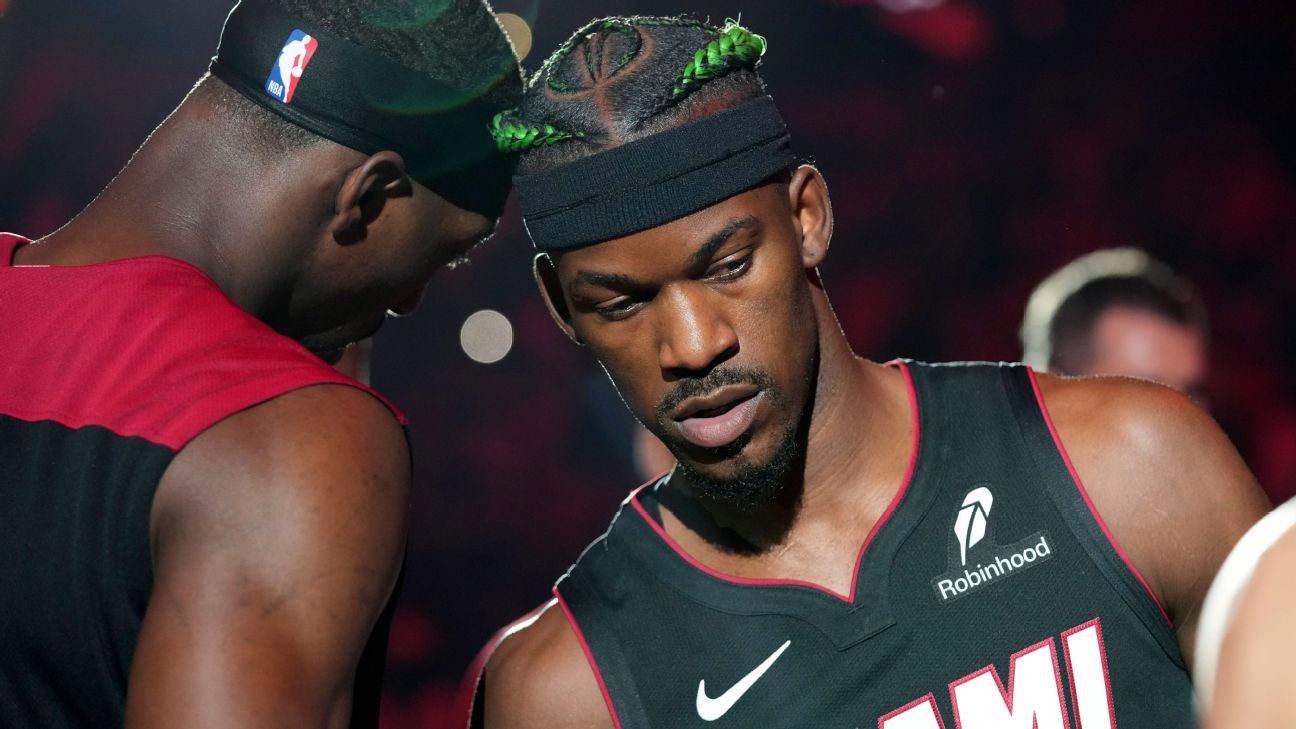'Jimmy hasn't even really started': Inside the simmering feud between Butler and the Miami Heat

The Heat's Scorching Internal Battle: Jimmy Butler's Departure
The Heat's Losing Streak Sparks Trouble
Miami Heat's coach Erik Spoelstra faced an unexpected barrage of questions on January 9, just days after the team's suspension of star forward Jimmy Butler for a loss to the Indiana Pacers.
The decision, made in an effort to quell media chaos and allow the team to focus on their West Coast road trip, had marked a dramatic turn of events that threatened the franchise's vaunted "Heat Culture."
Butler's Underlying Discontent
Despite the suspension, questions about Butler's future with the team persisted. Rumors emerged that he was pushing for a trade, due to alleged frustrations over his diminishing role in the offense and issues with team management.
While team sources claimed Butler's return was imminent, an ominous sense of dread hung over the locker room. "I don't know how he can come back to this locker room," said an anonymous source close to the team.
Sources of the Rift
The rift between Butler and the Heat had been brewing for some time, fueled by the player's independent nature and the team's unwillingness to grant him a substantial contract extension.
Butler's request for a trade mirrored his previous exits from other teams, such as Minnesota and Philadelphia, which were marked by varying degrees of acrimony.
The Erosion of "Heat Culture"
The Butler incident brought the Heat's iconic "Heat Culture" into sharp focus. Created by team president Pat Riley in 1995, it demanded a relentless work ethic and a high level of professionalism both on and off the court.
Butler's actions and public statements had challenged the culture, raising questions about whether it could withstand the test of a star player's defiance.
Riley and Butler: A History of Conflict
The conflict between Butler and the Heat's management had been a long time coming. Riley, known for his pugnacious personality, had clashed with other superstars in the past, including Shaquille O'Neal, Dwyane Wade, and Alonzo Mourning.
Sources indicated that the current situation was relatively tame compared to these previous confrontations, which had often centered on player performance rather than financial matters.
The Impact of Dwyane Wade's Departure
Wade's departure from Miami in 2016 significantly influenced the handling of Butler's situation. Team executives, determined not to repeat the mistake of underrating a star player, initially gave Butler more leeway than previous franchise players.
However, when negotiations for a contract extension stalled, it became clear that the Heat were unwilling to make the same financial commitment to Butler that they had to Wade.
The Ascendancy of Bam Adebayo
Butler's departure opened the door for Bam Adebayo, the team's rising star, to take on a leadership role. Riley and Spoelstra saw Adebayo as the future of the Heat, a player who embodied the values of hard work and dedication.
Butler's realization that he was no longer the undisputed leader of the team fueled his desire to seek a trade and join a team where he could be a more central figure.
Butler's Ambitions and the Suns as a Destination
Butler's audacious plan to orchestrate a trade to the Phoenix Suns highlighted his determination to have his contract and role on his own terms.
Despite the Suns' salary cap constraints, Butler believed he could bend the universe to his will and join a team boasting superstars like Kevin Durant and Devin Booker.